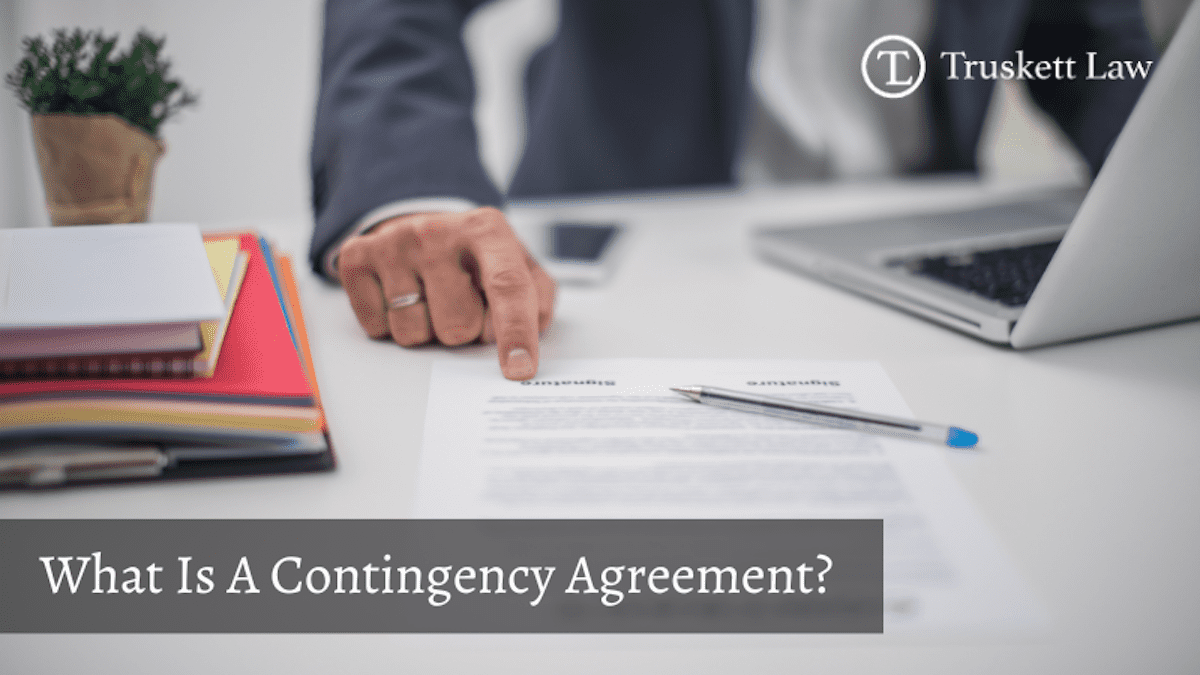
22 Aug What Is A Contingency Agreement?
What You Should Know About Contingency Agreements
If you’re in business, there’s a good chance you’ll need to sign a contingency agreement at some point. But what is a contingency agreement, and what are the benefits of signing one? In this blog post, we’ll answer those questions and more.
We’ll discuss what exactly a contingency agreement is, the benefits of signing one, and some common situations where it’s used. By the end of this post, you’ll have a better understanding of what contingency agreements are and whether or not they’re right for your business!
So, what is a contingency agreement? A contingency agreement is a contract between two parties that outlines what will happen if a certain event occurs. The event could be anything from the sale of a product to the completion of a project.
The contract will specify what each party is responsible for and what will happen if the event doesn’t occur.
For example, let’s say you’re selling your house. You might sign a contingency agreement with the buyer that says they can back out of the sale if their financing falls through.
Or, if you’re hiring a contractor to renovate your kitchen, you might sign a contingency agreement that allows you to cancel the contract if the work isn’t completed on time.
The Purpose Of A Contingency Agreement
There are a few reasons why you might sign a contingency agreement.
- First, it can protect you from financial loss. Let’s say you’re selling your house and the buyer backs out at the last minute. If you have a contingency agreement in place, they may be required to pay you a penalty fee. This can help offset any losses you incurred, such as the cost of finding a new buyer or holding onto the property for longer than you planned.
- Second, contingency agreements can protect you from legal liabilities. Let’s say you hire a contractor to renovate your kitchen and they do something that accidentally damages your neighbor’s house. If you have a contingency agreement in place, the contractor may be required to pay for the repairs. This can help prevent you from being sued or held liable for the damages.
- Third, contingency agreements can give you peace of mind. Knowing that you have a backup plan in place can help you feel more confident about moving forward with a project or sale. It can also help you sleep better at night knowing that you’re protected in case something goes wrong.
How Are Contingency Agreements Used or Enforced?
 Contingency agreements are most commonly used in real estate transactions, but they can be used in other situations as well.
Contingency agreements are most commonly used in real estate transactions, but they can be used in other situations as well.
For example, you might sign a contingency agreement when you’re hiring a contractor for a home renovation project.
Or, if you’re buying a car, you might sign a contingency agreement that allows you to return the car if it doesn’t meet your expectations.
If a case is brought to court, the court will usually enforce the terms of the contingency agreement. This means that if one party doesn’t hold up their end of the bargain, they may be required to pay damages. In some cases, the court may also order one party to perform their obligations under the agreement.
It’s important to note that not all contingency agreements are enforceable in court. For example, if the contingency agreement is for something illegal, the court will not enforce it. Also, if the terms of the agreement are unclear or unfair, the court may not enforce it.
Should You Sign A Contingency Agreement
 Now that you know what a contingency agreement is and how it’s used, you might be wondering if you should sign one. The answer to this question depends on your situation.
Now that you know what a contingency agreement is and how it’s used, you might be wondering if you should sign one. The answer to this question depends on your situation.
If you’re worried about financial loss or legal liability, then a contingency agreement may be right for you.
However, if you’re comfortable with the risks involved, then you may not need a contingency agreement.
It’s also important to keep in mind that not all contingency agreements are enforceable in court. So, even if you do sign one, there’s no guarantee that it will protect you.
If you’re still not sure whether or not to sign a contingency agreement, it’s a good idea to talk to an attorney. They can help you understand the risks involved and advise you on whether or not a contingency agreement is right for your situation.
Things to Consider Before Signing a Contingency Agreement
There are a few things to keep in mind if you’re considering signing a contingency agreement.
- First, make sure you understand the terms of the agreement and what will happen if the event doesn’t occur.
- It’s also important to have realistic expectations about the likelihood of the event occurring. For example, if you’re buying a house and the contingency agreement is that the buyer can back out if they don’t like the neighborhood, there’s a good chance that the event will occur. However, if the contingency agreement is that the buyer can back out if they don’t like the color of the walls, then the event is less likely to occur.
- Finally, make sure you’re comfortable with the risks involved before you sign anything. A contingency agreement is a legally binding contract between two parties. The agreement states that if a certain event occurs, then one or both parties will take specific actions.
What Needs To Be Included In A Contingency Agreement?
There are a few key elements that need to be included in a contingency agreement.
- First, the agreement needs to identify the parties involved. This means that the full names of both parties should be listed in the agreement.
- The second element is the event that will trigger the contingency agreement. This can be anything from failing to close on a house to not getting the job you interviewed for.
- The third element is what will happen if the event occurs. This is usually where one party will be required to take some sort of action, like returning a deposit or paying damages.
Finally, the agreement needs to be signed by both parties. Once it’s signed, it becomes a legally binding contract. If you’re considering signing a contingency agreement, make sure you understand all of the elements that need to be included. This will help you avoid any legal problems down the road.
Final Notes
 In conclusion, a contingency agreement is a legally binding contract between two parties.
In conclusion, a contingency agreement is a legally binding contract between two parties.
The agreement states that if a certain event occurs, then one or both parties will take specific actions.
Contingency agreements are often used to protect against financial loss or legal liability. However, not all contingency agreements are enforceable in court.
If you’re considering signing a contingency agreement, it’s important to understand the terms of the agreement and the risks involved. You should also talk to an attorney to get advice on whether or not a contingency agreement is right for your situation. We hope this article was helpful to you, thanks for reading!
Related Questions
Can you back out of a contingency agreement?
It depends on the terms of the agreement. If the contingency is not met, then one or both parties may be able to back out of the agreement. However, if the contingency is met, then both parties are usually obligated to follow through with the agreement.
Do contingency agreements need to be in writing?
There is no legal requirement that contingency agreements be in writing, but it’s generally a good idea to put them in writing so that there is no misunderstanding about the terms of the agreement.
Do I need a lawyer to create a contingency agreement?
You might be able to create a simple contingency agreement on your own, but it’s generally a good idea to have an attorney help you with the agreement. This is especially true if the agreement is for a large amount of money or if complex terms are involved.


Sorry, the comment form is closed at this time.